
The author of the Telegram channel "Sex, cartels, Frida Kahlo talks about one of the most popular routes for sex tourism, talks about the Eastern European roots of one of the main red-light districts of Rio de Janeiro, and also analyzes, how safe can brazilian sex be.
It is considered, that Brazil began to overtake Thailand and occupy a leading position in the ranking of the world's sex capitals only since the early 2010s or even later - after the World Cup 2014 of the year. However, back in the early 1950s, government authorities took a course to popularize Brazil as an international tourist center..
Sun images, beaches, palm trees, ocean and tanned girls with tight curves were used in all advertising brochures. Stories about ancient times and the sexual adventures of Portuguese aristocrats 16 century, organizing orgies in nunneries and turning them into brothels, were even more embellished and moved to the territory of Brazil.
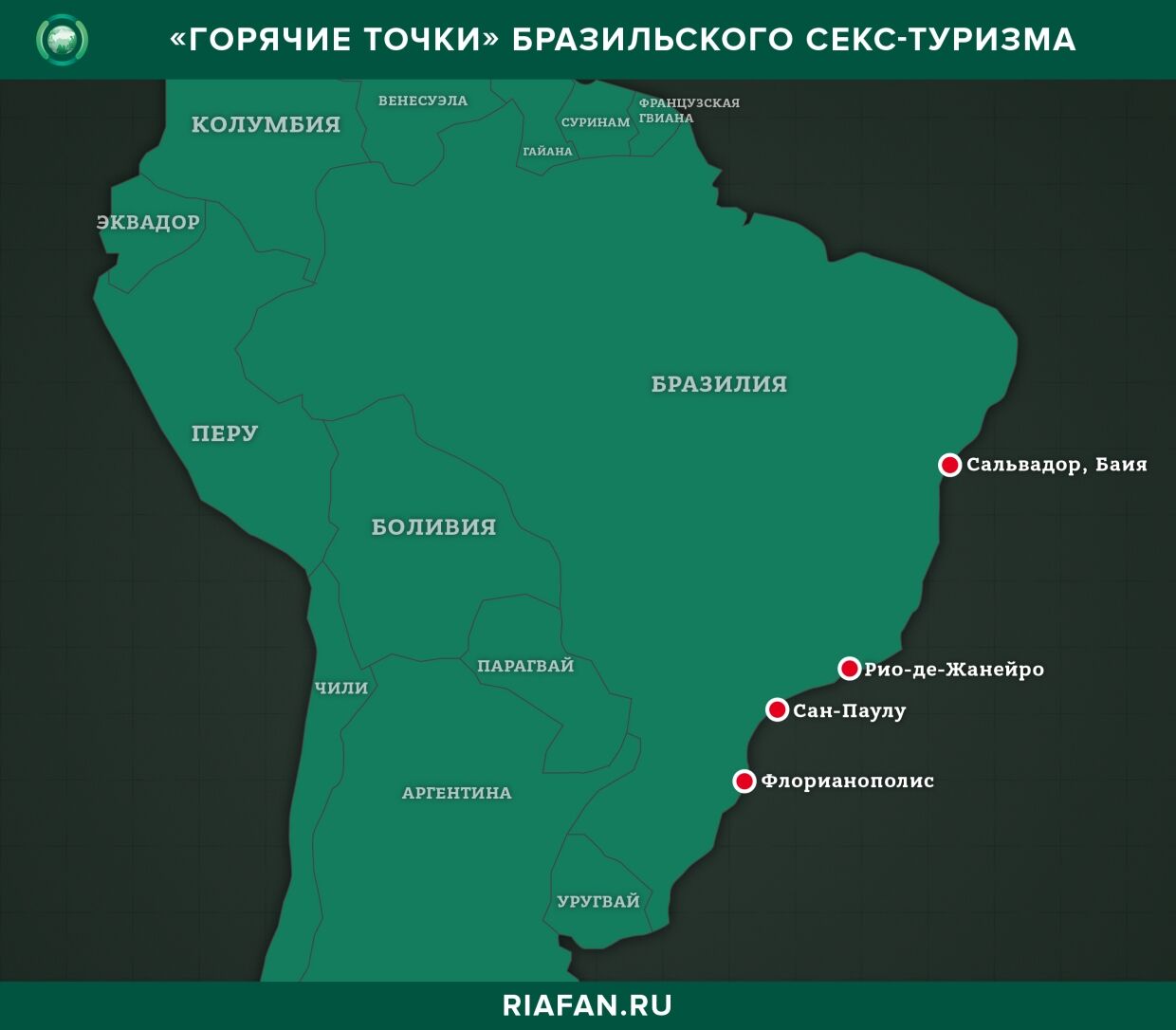
Additionally, competent PR people picked up and inflated rumors about the high sexual temperament of local residents, which, coupled with high religiosity, looked very enticing to Europeans tired of World War II.
These efforts, plus the construction of hotels and the holding of the famous Brazilian carnivals soon bore fruit and European and American tourists began to come to the continent.
At the moment, for foreigners, the greatest interest is Copacabana - it is there that all the main attractions of the Brazilian sex industry are located. That and curvy girls in bikinis, beating off customers from each other, sometimes with the use of force, and metrosexuals with a football background and Creole roots, and transsexuals, at any time ready for the next episode of the Brazilian carnival.
Also, it is in the areas near Copacabana beach that the highest concentration of bars, massage parlors, sauna, mini-hotels, sex shops and nightclubs.
There are other red-light districts, which are in demand by locals or tourists, who want to fully immerse themselves in the local exotic.
The most famous of them are Villa Mimosa in Rio de Janeiro and Rua Augusta in Sao Paulo.
Villa Mimosa
Vila Mimosa is located in the north of Rio. Even during the First World War, many Eastern European unmarried women settled here., fled from wars and revolutions in Rio de Janeiro. The girls came from Poland, Lithuania and Russia, and had no other way to make a living, except to start accepting local men. Residents of Rio still call the first prostitutes on Vila Mimosa "Polish", without going into detail.
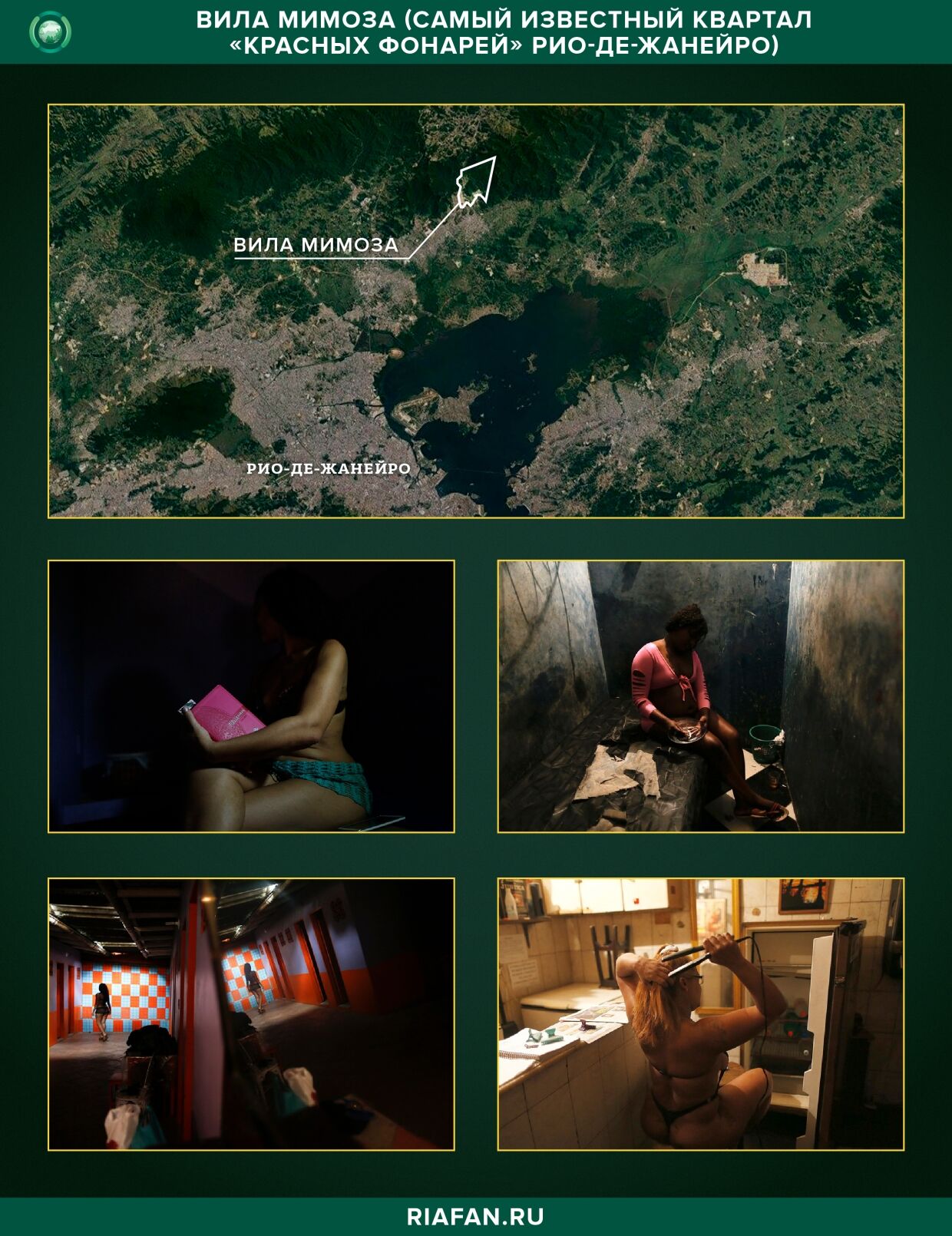
As of 2010 almost three and a half thousand women worked there for a year. They served about four thousand people per night.. In the early 2010s, the situation at Vila Mimosa looked rather conservative.: local gang members, guarding sex workers, chased away men and transsexuals, looking for clients in these neighborhoods.
“Driven away” in this case is considered as a positive outcome of events. Arrange a carioca (residents of Rio) there are still rumors about the reprisals against the "priests of love", who decided to take up the oldest of professions, which gang leaders considered exclusively female. The method of reprisal was somewhat banal - caught sex workers cut off the genitals. Sometimes corpses were found with the same organs in their mouths..
However, from about 2015 years, the tolerance of the center of Rio has reached these places. The number of tourists and just curious comrades has increased, and Vila Mimosa has become a kind of cultural cluster with brothels. Since keeping a brothel or otherwise exploiting sex workers is prohibited under Brazilian law, all saloons are registered as bars, ordinary hotels, massage parlors and saunas. Some have gone even further.
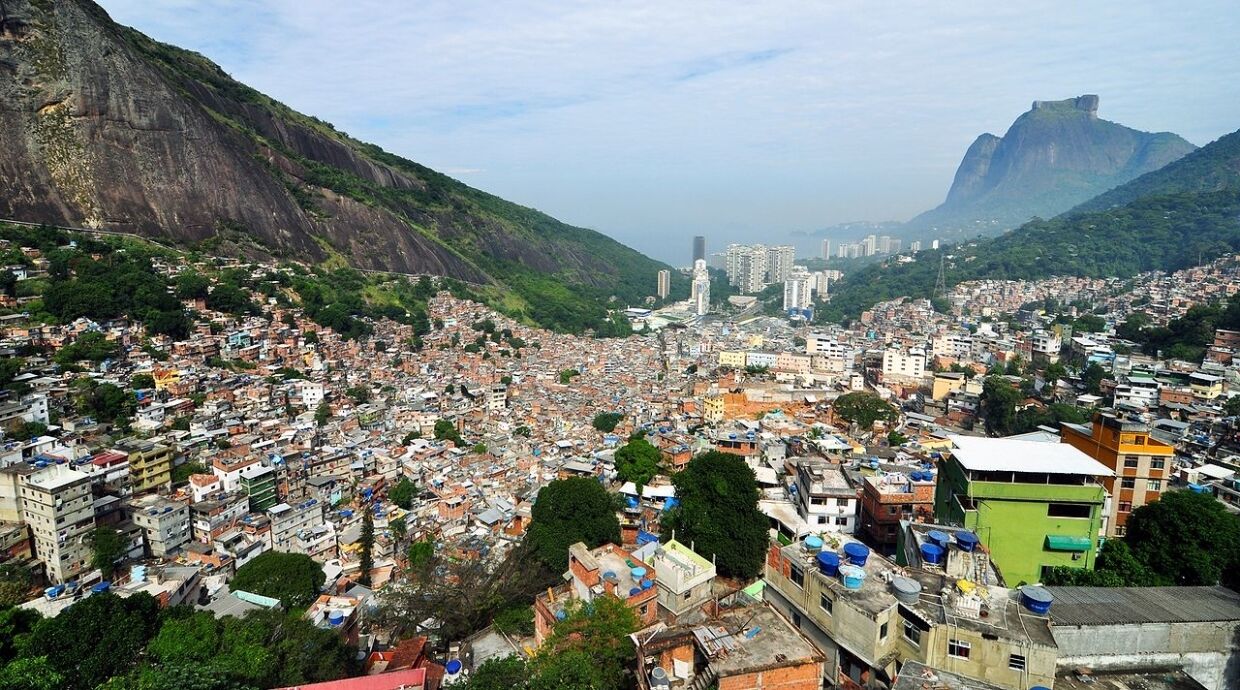
So, Vila Mimosa has erotic theaters and sex shows, where everyone - if there is enough money - can watch dramatizations of classical plays, containing sex scenes. Some productions also involve the direct participation of the audience - a show with five mulatto girls is especially popular with foreign tourists., dragging one or more men out of the auditorium. In some cases they depict slaves, pleasing the master with all possible, rather, by all paid methods.
Outside of such theaters, Vila Mimosa also has enough spectacles. They, however, no difference in fashion. Prostitutes work in cramped dark rooms on the upper floors of bars, as well as in residential buildings. Sometimes they can serve a client right on the street, and now we are not talking about an ordinary blowjob in a dark alley.
Prostitutes in Vila Mimosa are quite easy to recognize: they either sit at the entrance to another bar, or walking around the block. Usually, everyone showing bare breasts. Sex workers stand out brightly against the backdrop of scurrying back and forth residents of the quarter, drug dealers, tattooed gang members with their faces covered, little children, homeless and stray animals.

FROM 1 January 2020 the decree of the President of Brazil Jaira Bolsonaru, according to which the minimum wage in the country is about 1039 reals - that is, a little less than two hundred dollars. Vila Mimoza's sex workers most often take 250 reales per hour (about 46 dollars), and per night can serve from 10 to 15 clients. And that's not counting "small" services like striptease., oral sex or masturbation, the cost of which sometimes does not exceed and 50 reals.
Tourism LGBTQ+
Among LGBTQ+ representatives (Lesbian, Gay, Bisexual, Transgender, Queer and others) Rio de Janeiro is one of the most popular tourist destinations. Also in 2010 year, and later and 2014 American pay TV channel Logo TV recognized Rio as the most sex-positive city in the world for the gay community.. Most of them are from the United States., Great Britain, Netherlands, France and Germany.
LGBTQ+ make up almost 30% from the entire tourist flow and bring Brazilian business over two hundred million reais per year, which is the highest among Latin American countries.
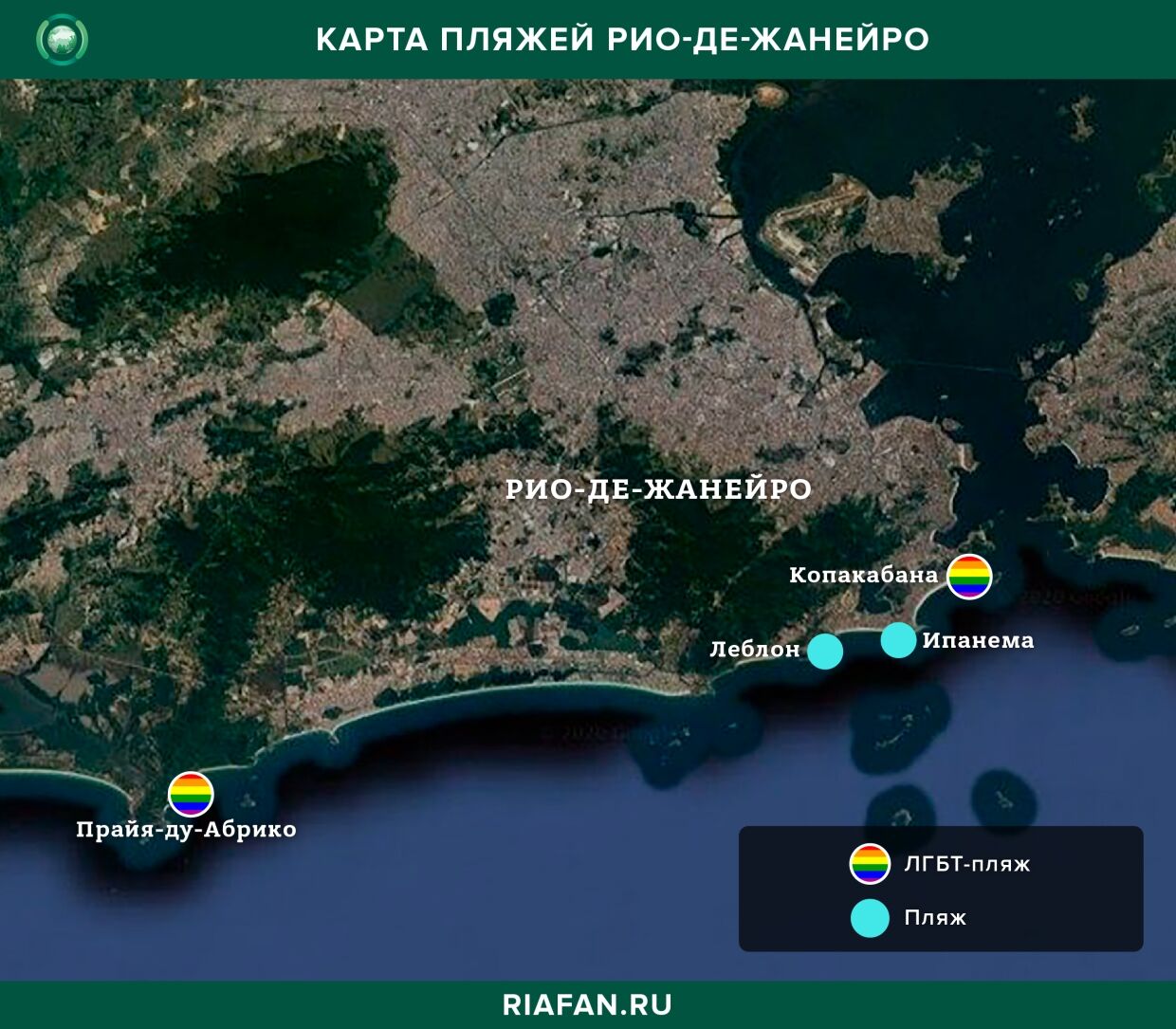
Most hotels, Brazilian bars and restaurants identify themselves as gay-friendly. Brothels, offering services to foreign tourists, for the most part, they are also open and positively disposed to all possible formats of sexual orientation and gender of visitors.
On the beaches of Rio de Janeiro - for example, Ipaneme, — there are dedicated areas for LGBTQ +, movements marked with a branded rainbow flag. Also, representatives of the gay community have fun on the nudist beach of Abriko.
Besides Rio, popular LGBTQ+ destinations in Brazil are Sao Paulo, Florianopolis, Salvador and Fortaleza.
Besides, gay parades are very popular. So the annual LGBTQ+ parade in Sao Paulo, recognized by the gay community as the best in the world, in which almost 4 million demonstrators, brings to the state treasury almost 160 million reais. it, for a second, 70 million euros.
for comparison, other Latin American gay tourism destinations earn much less. In particular, Argentina gets a little more from LGBTQ+ 5 million dollars per season, and Mexico is already over 8 millions.
About personal safety
A question of personal safety in any part of Brazil, despite the assurances of travel agencies and the joyful smiles of Brazilians on brochures, still up to date.
for example, cases of theft, in which it is customary in the same Rio de Janeiro to blame only transgender people, happen quite often and not always because of transgender or intersex people. And good, if it's just theft: abductions and murders of unlucky tourists are not uncommon, visiting a brothel with a dark reputation, rude owners or offended girls.
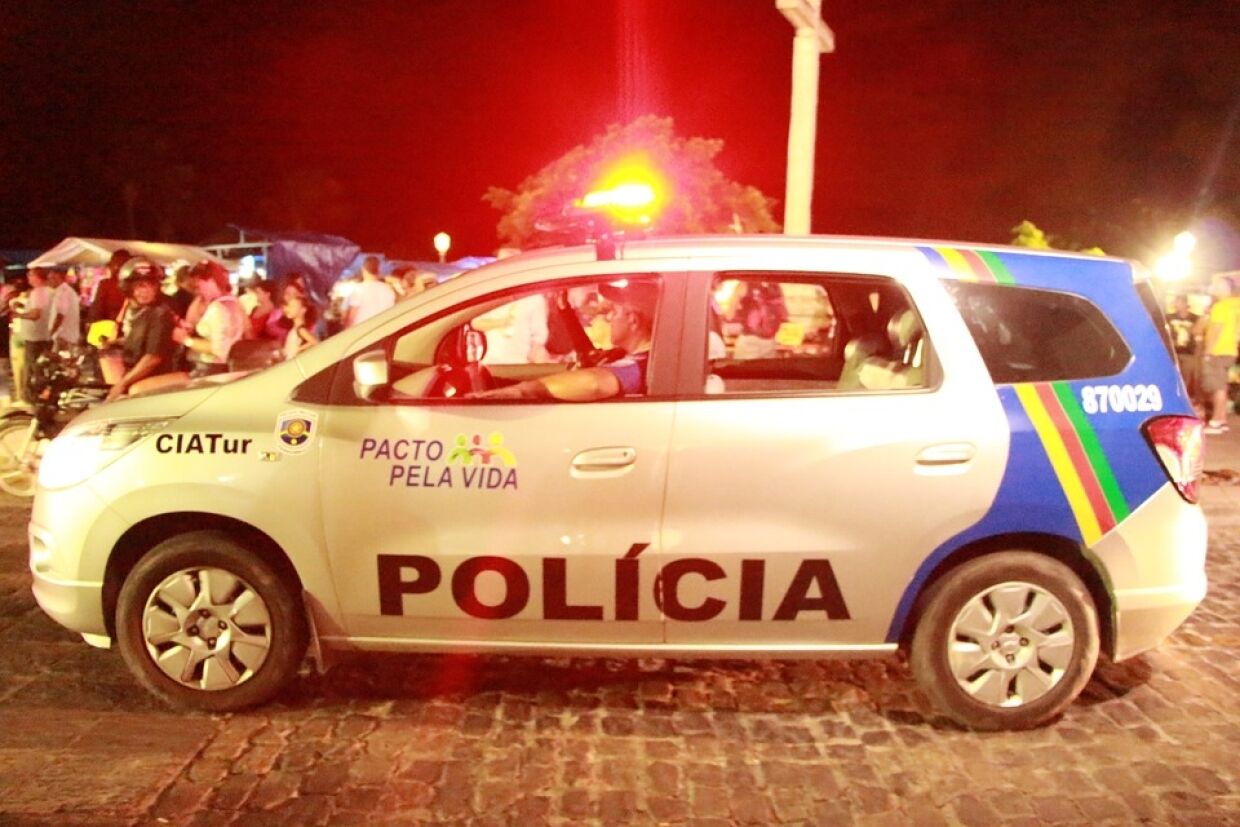
Besides, local authorities highly discourage foreign tourists from visiting favelas, which also have their own brothels and very specific eateries. Settling in a favela is a separate sport altogether.. Besides, gay tourists and transgender people were initially ordered to go there.
Wherein, can not say, that all Brazilian slums are potentially dangerous - for example, favelas near the beaches of Copacabana, Ipanemas, Leblon and Sao Conrado are considered relatively civilized. Tourists, who decide to stay in local motels, recommend “just” not to wear jewelry, cash and don't go home alone. The prefix "after dark" does not work in the case of favelas.
A number of criminal gangs also specialize in kidnapping tourists.. Most often, the purpose of such a kidnapping is to obtain a large sum of money as a ransom., however, sometimes the poor get into real slavery.
Some are sold to coffee plantation camps, someone prettier - into sex slaves, and some may be sent to human organ dealers or "human farms". Women are kept on these farms, who are repeatedly forced to become pregnant. Sometimes they are forced to have abortions at any time to extract the embryo, or they are forced to give birth to children for sale..
Babies are resold to transplantologists, traffickers or pedophiles. Besides, stillborn children or women who died on such farms were in some cases sold at online auctions, conducted by thematic sites of fans of necrophilia.
Some of the kidnapped tourists end up in the camps of the terrorist group of the Revolutionary Armed Forces of Colombia (FARC), located in Venezuela. The main source of income for FARC is just the ransom for foreign tourists.
About safe sex
Brazil only by the beginning of the 2000s was able to overcome the HIV / AIDS epidemic and became the first country in the world, providing free and universal access to AIDS treatment. The introduction of highly active antiretroviral therapy has helped to reduce mortality and significantly improve survival.
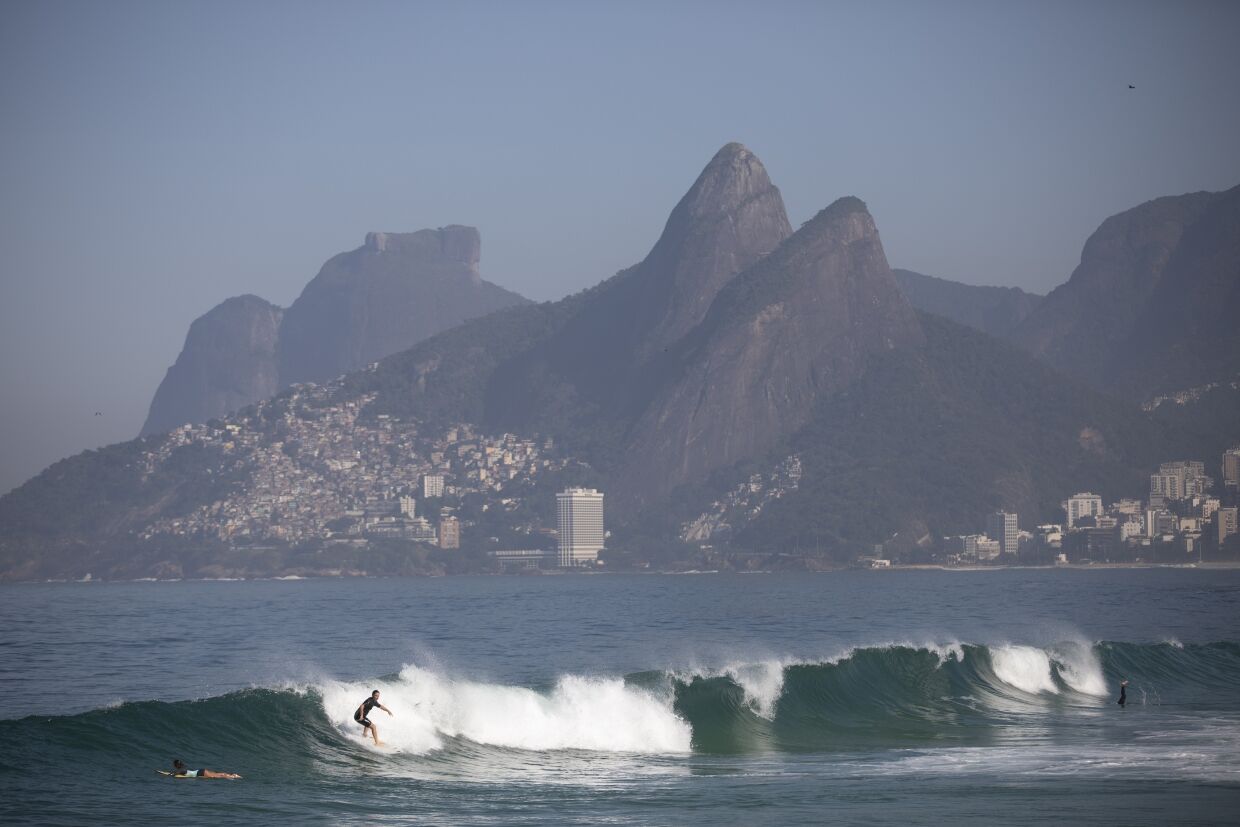
At the moment, the Brazilian experience in combating the HIV/AIDS epidemic is recognized as unique., taking into account the standard of living of the population, flourishing drug trade and the second-largest cocaine user after the United States. This despite the fact, that even in the midst of the epidemic, the Brazilian authorities refused to ban prostitution, to reduce the number of cases.
Instead, a national prevention program was launched., in which Brazilian states independently purchased condoms and distributed them free of charge in hospitals and women's social centers. Furthermore, prostitutes who applied to such centers had the right to receive them free of charge and in any quantity.
During the World Cup 2014 year, the budget of the event provided for the purchase of condoms for free distribution to fans, athletes and sex workers, who came from almost all over the world for this holiday of life.

However, that's where the good news ends.. Yes, more likely to be infected with the coronavirus at the moment, than STDs or HIV/AIDS. However, this is only in the case, if you are having sex with a woman, moreover, who did not have time to visit places of deprivation of liberty.
Brazilian prisons, in addition to overcrowding, gang warfare and high mortality are famous for, that measures to prevent HIV/AIDS bypassed them. Prisoners are not entitled to free condoms. meanwhile, according to information, provided by the State of Sao Paulo, on the territory of which four large prisons of Mongagua are located at once, Tremembe, Porto-Felis and Mirandopolis, nearly 70% male prisoners had sexual intercourse with each other. Wherein, 1 in 5 inmates in Sao Paulo have been diagnosed with HIV.
It can be assumed, that after being released from prison, no one is eager to observe celibacy, and not all tourists (especially from Eastern Europe) concerned about demanding medical certificates from hot strangers.
meanwhile, Brazil is also among the countries, forbidding men, who have ever had homosexual intercourse, becomes a blood donor. The high rate of infection from such sexual intercourse is still used by the government as the main argument for maintaining this very unpopular ban.. In medical circles, this point of view is not popular and is considered unreasonable., while many Brazilians explain such a ban not at all as a concern for the health of citizens, but banal discrimination.
Author: Frida Kahlo











